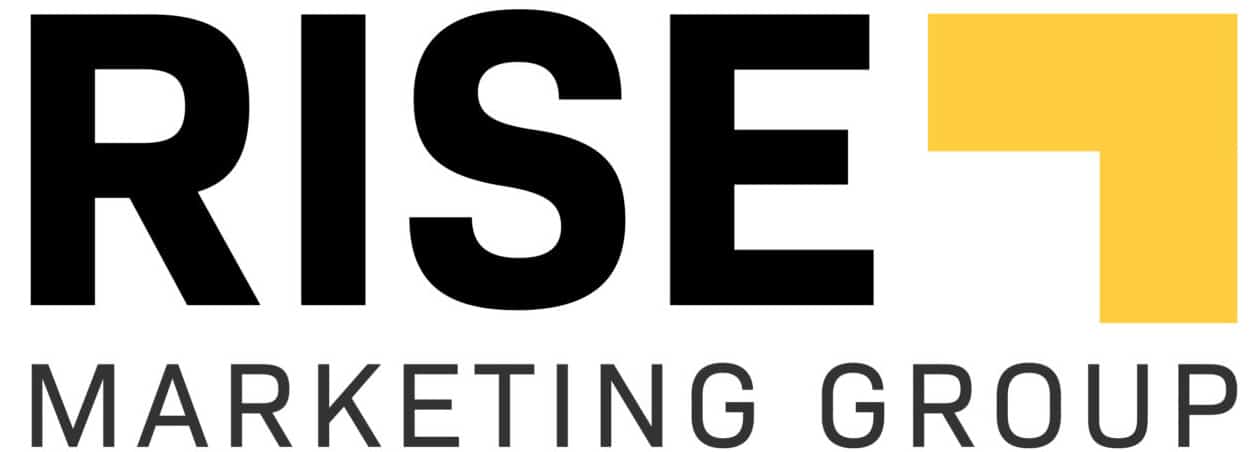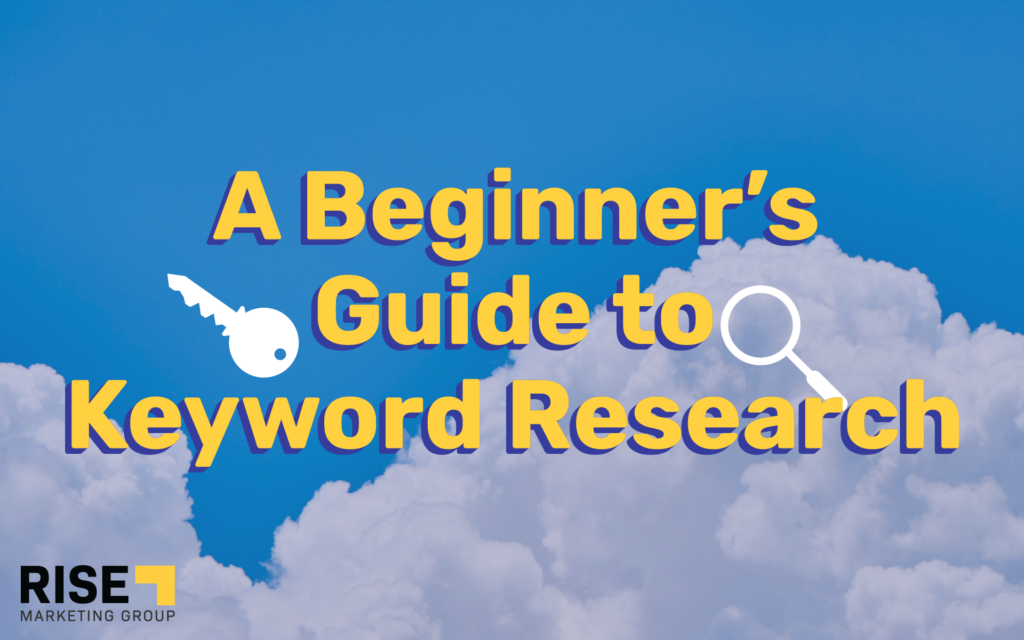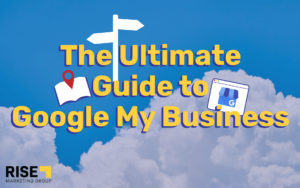With all of the updates that Google rolls out per year, one key piece of on-page SEO stays the same: the need for keyword research. According to Google, they expect to notify users for about 10 updates in 2023. However, Google is constantly updating, with thousands of updates happening each year, though some are smaller than others. In all of these updates, keyword research remains a necessity to understand how to rank pages within search results.
What Are Keywords in SEO?
To strategize from using keyword research, you first need a strong understanding of what keywords are, and how businesses leverage them to create optimal content for their target audience.
Keywords are terms that users enter into search engines to discover content that they are looking for. They can help users find blogs, videos, news articles, products, information, images, and more. Google uses keywords to determine how to organize every indexed page that shows up within its search engine.
There are many different types of keywords that serve different purposes for users including:
- Branded Keywords: Consist of a brand name or business and can help users looking for a certain company or branded product/service.
- Commercial Keywords: For users looking for a specific products or service but might not yet be at the purchase stage
- Geotargeted Keywords: Utilize a specific geolocation (town, city, state, region, etc.) to narrow down search results for users looking for location-specific information.
- Transactional Keywords: For users who show the strongest intent to make a transaction or immediate action
- Short-Tail: Known as “seed” keywords, are the most highly searched words or phrases for a given topic. These tend to be as short as one word long and are highly competitive. For example, “marketing” or “shampoo”.
- Long-Tail: Longer form terms that cover a specific topic. These tend to be less competitive but also have less volume of users searching. For example, “ChatGPT best practices for content marketing” or “what chemicals to avoid when buying shampoo”.
The keywords on any given page on your site should mirror user intent. To best determine how to use keywords on your site, you need a strong understanding of how your target audience should interact with each webpage.
Why Is Keyword Research Important?
Keyword research is essential to understanding how your target audience searches. Without this understanding, you will not have a strong grasp on how to show up within those search results. Keywords show both search engines and users what each page on your site offers. It helps search engines determine where you should rank within specific search queries.
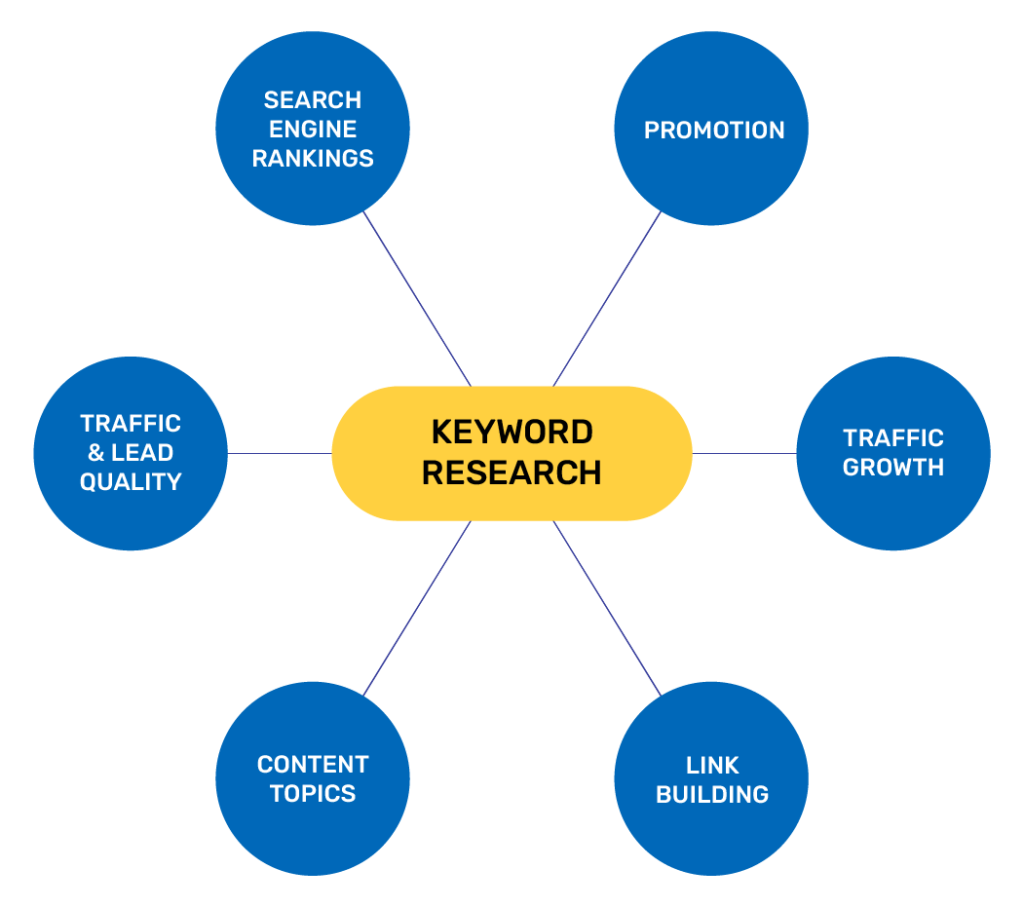
Another benefit of keyword research is understanding the intent behind each search term. Users searching for “SEO services” are looking for a business offering services to help them boost organic traffic to their site. Users searching for “seo updates” are industry news, search engine algorithm updates, and informational guides.
How to Find Keywords on a Website
Webpages can contain more than just one keyword. There is no limit to how many keywords a page can be recognized for by search engines. However, there is a limit to how many you should target for any given page. One of the major best practices when it comes to keyword research is to avoid “keyword stuffing,” which prioritizes putting as many keywords on a page as possible but takes away from the value of the content to users.
If you want to update a page on your site, the first place to look for keywords is in the title. The meta title is the first indicator to Google on what a page is about. When the page is indexed, it will be the first hint as to what searches the page will show up in. For example, a page entitled “SEO Services” is likely to show up in searches for “SEO agencies near me” or “search engine optimization agency”. If you search specifically for “SEO services,” this page would appear where Google ranks it within that search.
What Is Your Target Audience Searching For?
Choosing keywords to target relies on an understanding of what users are searching for. Having strong base knowledge of your target audience makes it easier to tailor your content to their needs. This includes understanding user behavior and how they might interact with pages on your website. You can then use this understanding to pick keywords based on user intent.
With all of the helpful content updates Google has made recently, it’s no secret that they prioritize user-first content. This means that your pages should focus on your users first before focusing on marketing or trying to rank higher on Google by cheating the system.
Understanding the Value of Keywords
Each keyword is valued differently based on a variety of factors. You may not want to only use what would be considered “high value” keywords because of high competition. Some factors that influence the value of keywords are:
- Volume
- Competitiveness
- Low Hanging Fruit Keywords
- Long Tail Keywords
Volume reflects how many users search for a specific search query in Google for any given amount of time. Low volume keywords may mean less users search for them, but it could also mean that there is less competition for these. Low hanging fruit keywords reflect keywords that present the highest opportunities for your website to rank.
Long tail keywords tend to be keywords that are less competitive. Most users type in short searches first, leading to a mass amount of search volume and search results. The longer a keyword is, the high likelihood that some of this search traffic is reduced and less websites contain that keyword.
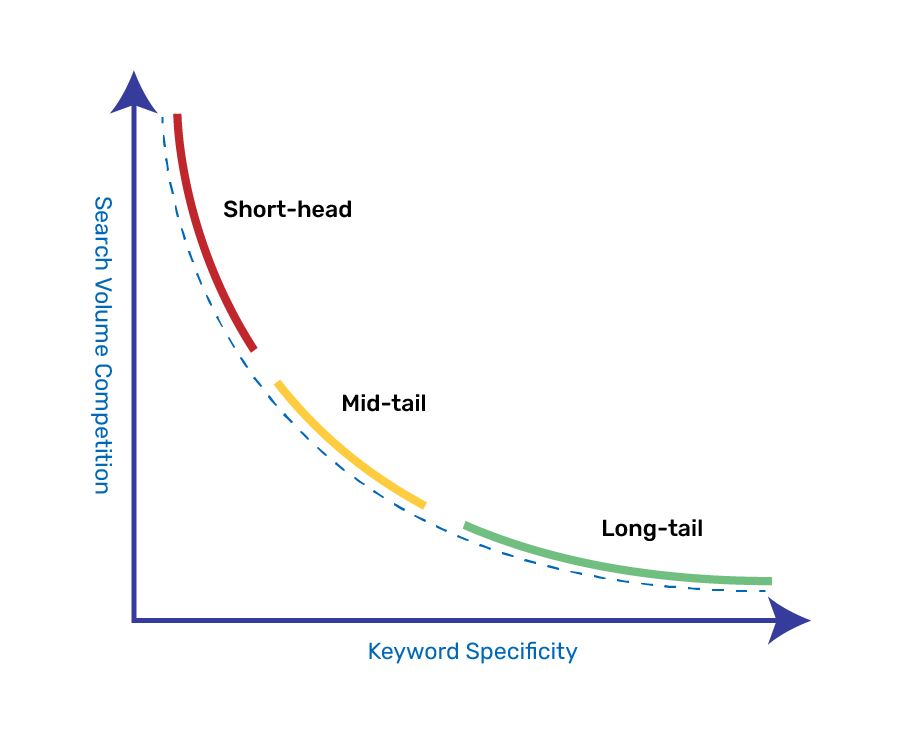
Tools for Keyword Research
There are plenty of tools available to help businesses understand how their pages are being used in search results, based on keywords.
Google Search Console
Google Search Console provides businesses with search queries (keywords) and which pages on your site point to those search queries. It also provides user data on organic impressions and clicks for any given search query or webpage, so you understand how often users see your site within search results.
Semrush
Founded by Oleg Shchegolev and Dmitry Melnikov, Semrush offers different levels of subscriptions from free to a paid business plan. Its extensive keyword research tools provide information on SERPs, search volume, search difficulty, user intent, competitive keyword gap analysis, and more. The tool can be overwhelming for beginners to use. But, the information it provides helps boost your organic traffic and improve your site’s search rankings if used correctly through the implementation of a full SEO strategy.
Ahrefs
Founded by Dmytro Gerasymenko, Ahrefs offer both a free keyword research tool and Keyword Explorer, a research tool available through their plans. It is very similar to Semrush in terms of functionality and usefulness. Both programs have their strengths and weaknesses, leaving it down to preference.
What better way to understand user search intent than by doing a quick search yourself? Through a quick Google search of topics you want your site to cover, you will gain a greater understanding of how those search terms are used. For example, a Google search of “digital marketing agency” will show you results of digital marketing agencies, likely with ones in your area. A google search of “digital marketing” will provide you with results about what it is, how it’s used, and the different types of services and strategies offered.
How to Prioritize Keywords
As the leading search engine, Google processed 9.23 million search queries in June 2023 alone. Finding the perfect keywords for a page may not be a simple task, given the amount of keywords available for any given topic. When determining which keywords to prioritize on a page, always consider the intent of your target audience first.
Here are some simple questions to ask when determining keywords for a webpage:
- What is the overall purpose of the page?
- How do I want my users to interact with this page?
- What are my users searching for?
- How will this page help my users find the answer they are searching for?
- When covering this page’s main topic, what key information needs to be discussed?
By determining the best keywords for a page, you are setting a page up to create positive engagements with your audience. This can lead to longer session durations, higher organic click through rates, and an overall improved user experience. With any page on your site, always address the needs of your target audience first.
